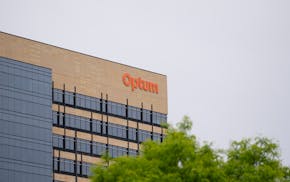A $132 million manufacturing campus — where companies will transform crops into industrial chemicals otherwise made with petroleum and often sourced from overseas — is coming to Maple Grove.
The demonstration-scale facility will be the first and flagship location for nonprofit BioMADE, which aims to build a national network of plants to bridge the gap between prototype and production, kick-starting the country's bio-industrial economy.
"What we really want to see is companies come use this facility, prove out their technology and develop a customer base," said BioMADE CEO Doug Friedman. "Then, best-case scenario, a company decides to build its commercial-scale facility somewhere nearby."
The state of Minnesota is kicking in $50 million to pay for the Maple Grove plant; the Department of Defense will cover the rest.
BioMADE, a public-private partnership headquartered in both the Twin Cities and the San Francisco Bay Area, formed in 2021 and has spent years looking for a site for its Minnesota facility.
The group will outfit an existing 122,000-square-foot building near Hwy. 169 and Elm Creek Boulevard with massive fermentation tanks and other equipment companies will need to test their products and processes.
The BioMADE facility will be just east of Maple Grove's sprawling Minnesota Science and Technology Center, where Boston Scientific is building a $170 million office and R&D center. The million-square-foot development has plenty of room for more businesses, and BioMADE could provide a pipeline for future tenants.
BioMADE, which counts companies such as Cargill and Lockheed Martin among its members, formed to build out the kind of experimental capacity the biotech industry typically doesn't make for itself.
"These types of facilities tend to be not a good value proposition for an individual for-profit manufacturer," Friedman said. "That's why it's a good place for government investment."
The facility will focus on nonmedical, defense-related materials but also support consumer-facing products like plant-based plastics, fabrics, detergents, paints and personal care items.
An initial staff of 25 could grow with demand after the facility opens in 2027.
There is an urgency behind the national security implications of having a healthy, homegrown bio-manufacturing sector. In a report out this month, the National Security Commission on Emerging Biotechnology said that "the United States is falling behind in key areas of emerging biotechnology as China surges ahead."
"Our window to act is closing," the report read. "The advancement of U.S. biotechnology requires a balanced approach, fostering competition without picking winners."
To that end, Friedman said the BioMADE facility will accept reservations from a range of companies looking to test their inventions, bring vetted ideas to the next level and find new markets for crops.
"Companies from Cargill to the two-person startup that came out of the U ... this is there for all of them," he said.

DOGE cuts federal money for upgrades at Velveeta plant in New Ulm

Minnesota factories strained by new steel tariffs and ensuing chaos
'We don't want to lose this mine': Fear sets in for Iron Range miners as shutdown takes hold

UnitedHealth sues the Guardian, alleging defamation in coverage of nursing home care
